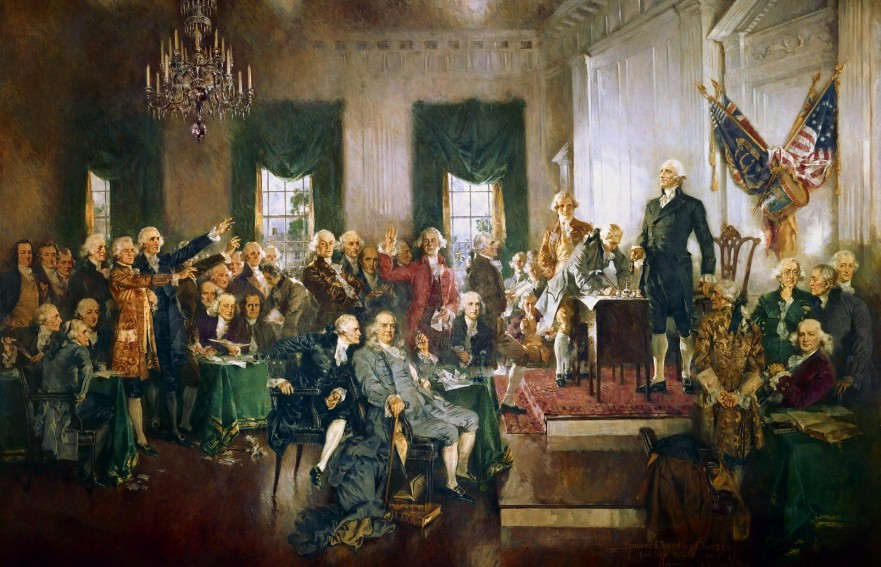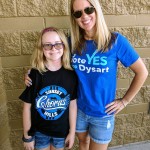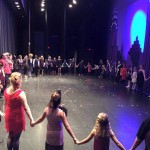This is part one of a two-part series of blogs written by Susan Collins and me.
I met Susan through the Arizona National Board Teachers Network shortly after she’d moved from Mississippi to Kingman, Arizona. We bonded over the culture shock that comes from being non-native to Arizona and absorbing the absurdity that comes with Arizona politics. Politics in Arizona, especially lately, feels more like fiction than reality. My fellow teachers and I often joke about…“next on “The Real Teachers of Arizona”…you won’t believe what those wacky legislators did to public schools today!”
Susan and I also connected over a love of musical theater and especially the musical Hamilton. We marveled at the parallel of the American Revolution to the systematic defunding machine that is currently attacking public education. In this fight, it’s hard not to feel outgunned, outmanned, outnumbered and out-planned. The odds were completely stacked against the colonists and their ragtag army, but they were passionate and persistent. You know who embodies passion and persistence? Teachers.
The founders of our country knew a republic was only as good as its citizens. When Ben Franklin emerged one day after the Constitutional Convention, he was asked what kind of government they were creating. He is said to have replied, “A republic, if you can keep it.”
Can we keep it? Our crAZy state of Arizona seems to be the very battleground where that question will be answered.
An interesting thing to consider is that the fight for public schools isn’t new, though it is certainly at a watershed moment in time. In 1809, Governor John Tyler, frustrated with Virginia’s lack of public funds for schools said, “A stranger might think we had declared war against the arts and sciences.” In other words, this is not a moment, it’s the movement.
Public schools are necessary. Public schools exist because the quality of our democracy depends on the quality of our citizens. We owe our diverse children common institutions, so they can learn to care for each other and our world. No man is an island – we owe an educated and informed citizenry to ourselves and to the future of our country.
This battle is going to come down to our social capital. Social capital is a measure of citizen’s capacity to work together. It is generated by “social networks and the norms of reciprocity and the trustworthiness that arise from them” (Neem, 2017, p. 62). Teachers have more social capital than we realize. We have a heavy influence on those around us.
What time is it? Showtime! We have less than sixty days until our state votes on critical issues that will determine the future of our public schools. I know it’s September and we’re all beginning-of-the-school-year-exhausted but there’s no time to lose. We can’t throw away our shot. The consequences for our public schools and students are too high stakes to take the easy route. We’re all going to have to work non-stop to encourage people who care about the public good to rise up and vote.
How do we do it? We harness our collective social capital – use the power of your expert voice. Get on social media to raise awareness. Speak to people one on one in line at the grocery store. Grow your network and show up to volunteer at events for education-friendly candidates. Bring a friend or ten so that tomorrow there’ll be more of us. Donate. Keep an eye on your fellow advocates. Pick them up when they fall down, as change agents invariably do. Inspire others with your actions they way Hamilton inspires us.
Get the job done. It’s time to take a shot. Work!
History has its eyes on you.
Miranda, L. M., & McCarter, J. (2016). Hamilton: The Revolution. Hachette UK.
Neem, J. N. (2017). Democracy’s Schools: The Rise of Public Education in America. JHU Press.










Comments 5
Oh, I have been excited to read this one since you guys started talking about it this summer. Boy, was it worth waiting for I agree. It really is showtime. As you wrote, “Teachers have more social capital than we realize. We have a heavy influence on those around us.” I completely agree. Looking forward to reading Susan’s upcoming Part 2 of this piece!
I agree. It really is showtime. As you wrote, “Teachers have more social capital than we realize. We have a heavy influence on those around us.” I completely agree. Looking forward to reading Susan’s upcoming Part 2 of this piece!
You are very kind, Jess. Part 2 comes out from Susan on Wednesday!
I really latched on to the social capital aspect as well. We are definitely more powerful than we oftentimes give ourselves credit for! Our power resides in our commitment to our students, to truth, and to the future. Society recognizes that (even if our bank account sometimes doesn’t) and looks to us to lead the way!
I heard once that parents choose their schools in the line at Costco. The point being that nothing compares to hearing other peoples’ real experiences first hand. And that’s where our social capital is so strong, because we are so close to the people who will be voting, we see them everyday, we may spend more hours with their kids than they do. There’s nothing wrong with using that social capital, and thanks for encouraging it.
That is so true, Sandy, or at the baseball field during games or at Happy Hour. And that is exactly why we NEED to use our social capital!